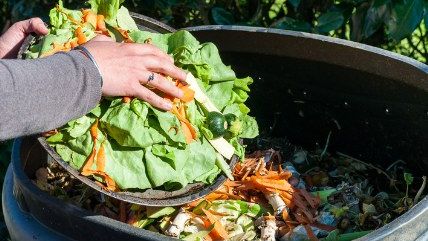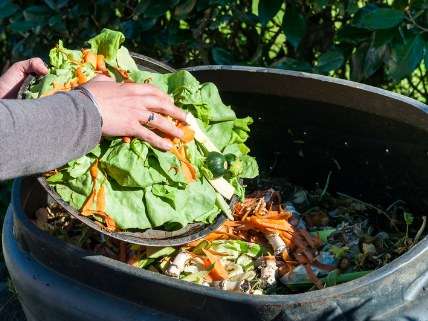Stop Government Promotion of Food Waste
Why do we put up with laws and regulations that contribute to the problem?


Earlier this year, Italy adopted measures to reduce the quantity of food that's wasted in the country. The laws encourage the use of doggy bags, which are uncommon on the continent. More importantly, they eliminate longstanding rules that have made it difficult or impossible farmers and grocers to donate food to those in need.
For those readers unfamiliar with the term, food waste means "food that completes the food supply chain up to a final product, of good quality and fit for consumption, but still does not get consumed because it is discarded, whether or not after it is left to spoil."
The Italian law fights food waste in several ways.
"The new laws seek to make donating food easier by allowing businesses to record donations in a simple form every month," reports The Independent. "Sanctions for giving away food past its sell-by date have been removed, and business owners will pay less waste tax the more they donate."
Other countries on the continent have already adopted similar measures. France has taken Italy one step further, with a law that took effect earlier this year requiring restaurants to provide doggie bags to customers who ask for them.
As I detail at length in my forthcoming book, Biting the Hands that Feed Us: How Fewer, Smarter Laws Would Make Our Food System More Sustainable, food waste is an enormous problem that poses huge challenges.
We waste around forty percent of our food, I note. If the percentage of food we waste is surprising, then the actual waste figures are closer to staggering. For example, Americans wasted 133 billion pounds of food in 2010. Forty-million tons of food waste end up in America's landfills every year.
Government efforts to reduce this tide of food waste are increasingly common. They're often the subject of much fanfare.
Yet hidden behind many of these government campaigns to reduce food waste is the frequent cause of that food waste: other government regulations. Much of our wasted food isn't due to the excesses or carelessness of individuals and food companies. Rather, it's often caused by idiotic and outrageous rules that force us to waste food.
Take the Italian example above. The causes of food waste cited by The Independent were: 1) complex government recordkeeping requirements; 2) rules barring food from being shared; and 3) high taxes.
Italy didn't need more rules to reduce food waste. It needed fewer rules so that people could follow their natural inclinations both to reduce food waste and to share food with those in need.
The challenges posed by rules are hardly confined to Europe. Just last week, for example, I wrote about USDA rules that forced a farmer to throw out tons of cherries.
And it's not just national governments that promote food waste. In Oakland, Calif. last year—in an example that opens the chapter in Biting the Hands that Feed Us that details ways that rules often promote food waste—the city council adopted a series of new composting and recycling services that was billed as "a huge step" forward in the city's goal of eliminating food waste (and other waste). Instead, though, Oakland's rules did just the opposite.
Restaurants in Oakland that had been composting food waste found those services were now far more expensive under the city's new mandatory contract. They were thousands of dollars more expensive, in fact, than the costs to simply throw out their food waste, where they'd end up in the city landfill. One restaurateur who owned eateries in Oakland and elsewhere in the Bay Area said he pays nearly seven times as much for composting for his Oakland restaurant as he does for his San Francisco restaurant.
Mandatory rules. Perverse incentives. More food waste. Reducing food waste means we first need to rid ourselves of the rules that promote it in the first place.


Show Comments (130)